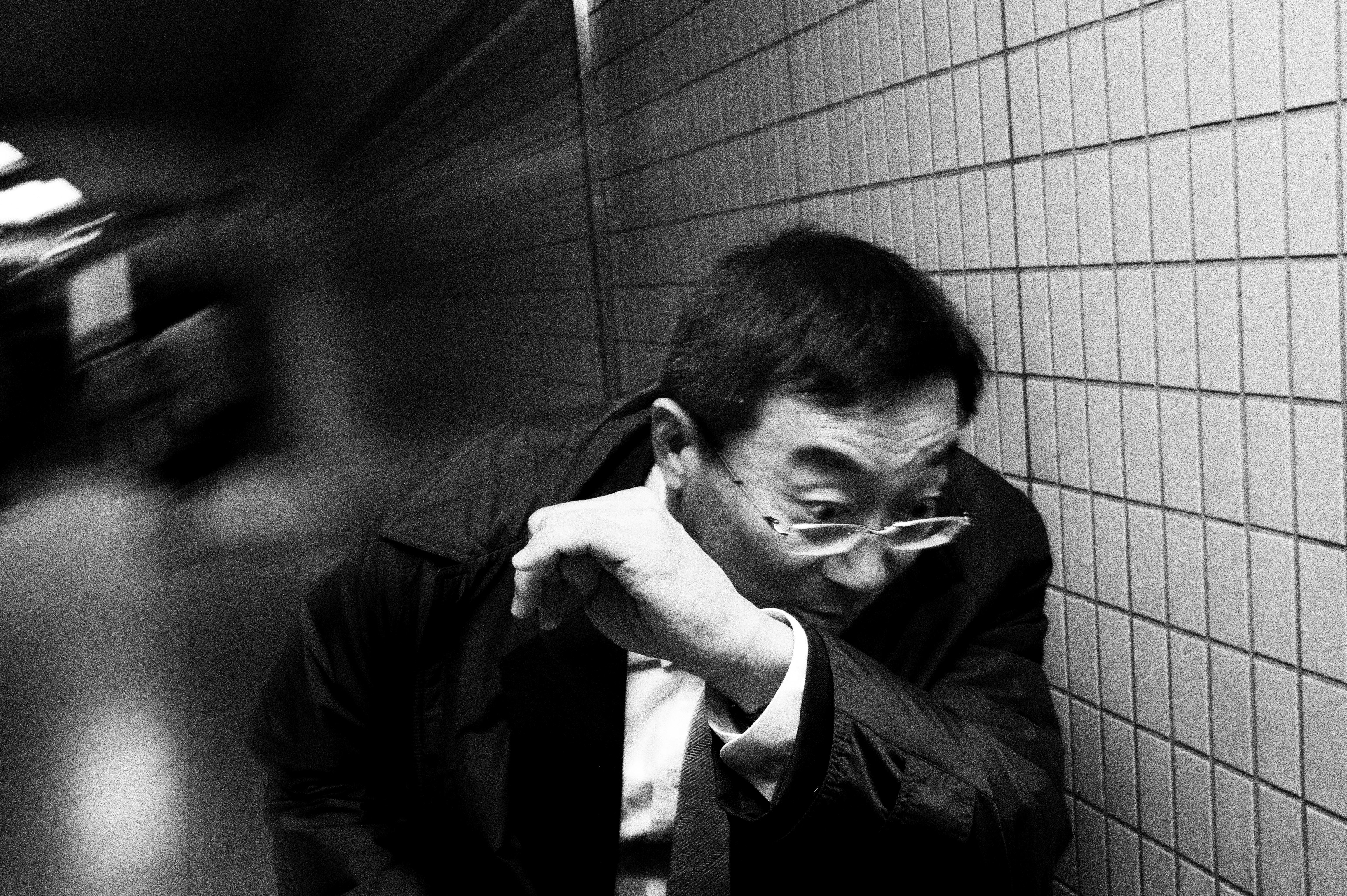
Dear friend,
Never let anyone critique your photos— especially if they’re not a photographer.
1. Ignore the feedback from art critics (who don’t make art)

Society doesn’t need any more commentators or critics.
I only pay attention to the feedback and critiques from photographers whose work I admire. For example, I pay attention to the feedback from my friends Charlie Kirk, Sean Lotman, Josh White, Neil Ta, Junku Nishimura, Chu Viet Ha, and a handful of other photographers whose work I like. And of course, I listen to what Cindy says– especially the photos I make of her.
Street photography is this weird little sub-genre. If you cannot shoot street photographs (or if you don’t shoot street photographs), you have no idea how it is to interact with subjects. To conquer your fear. To step outside of your comfort zone.
This is why I respect other street photographers— they have skin in the game.
It is easy to sit on a couch, and give photographers ‘feedback’ or ‘critique’. It is much harder to go out and make images.
2. Society needs more creators

Society needs more creators— more photographers, who actually create photos.
For the most part, I think photography critique is a waste of digital 1’s and 0’s. I think if a photography critique praises an artist’s work, or perhaps analyzes it in a constructive, educational, or positive way— it is useful. But photography critics whose joy it is to just tear down other photographers— these critics don’t have any right.
Not only that— but if you want to be a photography (or art) critic, you just need to know a few fancy words such as:
- Juxtaposition
- Liminality
- Physicality
Imagine this: if you created a bot or algorithm that just put together random strings of computer-generated ‘art’ commentary, a real human being probably couldn’t distinguish it.
For example, you can probably apply this statement to (any) piece of art, or photo:
I love the juxtaposition in this image. It evokes surreal imagery. It provokes me to meditate on the physicality of the material world.
I just made that up.
Or this:
This body of work is a disgrace to the art world. It spits upon the work of the great pioneers, and distorts the concept of the human condition. The work has no cohesion. The style is all fluff. The project is just a thin veneer of fluff.
So any positive or negative critique from an art or photo critic (myself included) is generally bunk.
3. Trust yourself

The last piece of advice I have for you: just trust your own intuition, your own gut.
The purpose of your photography isn’t to impress other photographers, artists, or critics. It is to find more personal meaning in your life.
Are you going to let some photography or art critic criticize the personal meaning of your life?
Always,
Eric
To find more personal meaning in your photography, pick up a copy of PHOTO JOURNAL.
Photography Philosophy

Find more meaning in your photography:

